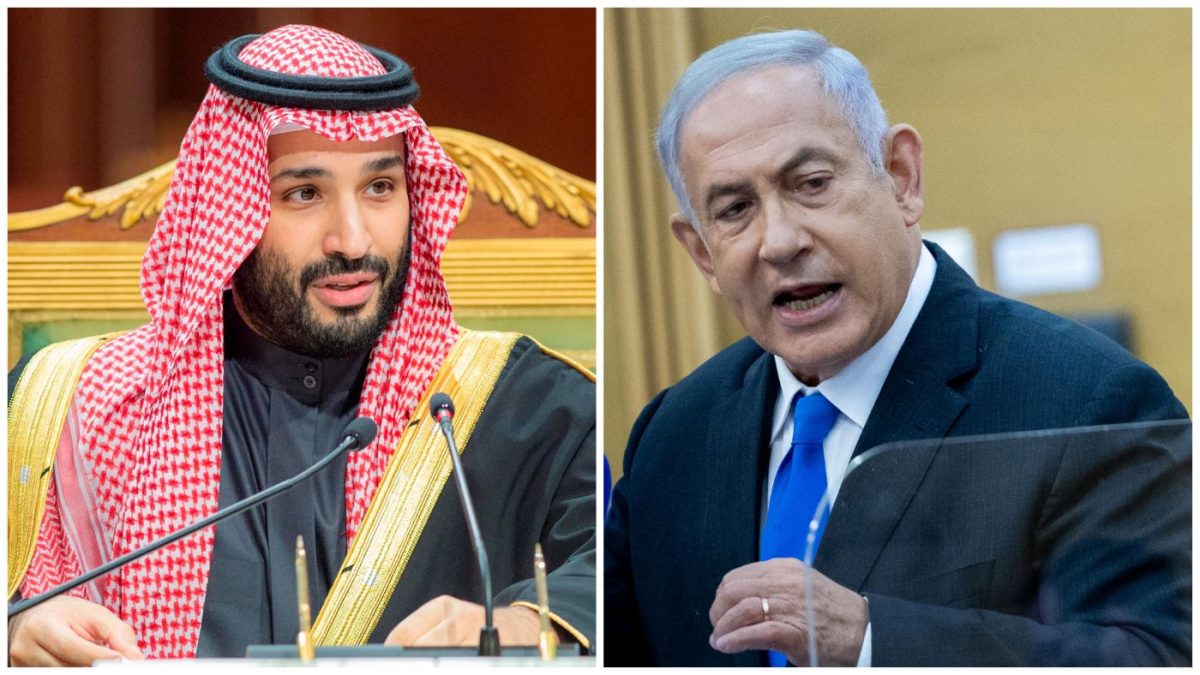“Israel has a lot of potential and normalisation can do wonders, not just for Israelis and Palestinians, but there’s potential for trade and cultural exchanges and exchanges with Israel on multiple fronts,” Fahad Nazer, spokesman for the embassy, said in an interview with the English-speaking and state-owned Arab News.
“But for that to happen, for the kingdom to take that step, we need that core dispute [with the Palestinians] to be resolved,” he added.
The remarks are a rare instance of the Saudi embassy making a media appearance, with the embassy being one of the most closed off to the media.
Over the past few months, Israeli news outlets had been reporting near-daily updates on the Joe Biden administration’s back and forth with Israel and Saudi Arabia. A report by Axios that the White House aimed to seal a deal within 6-7 months, before the next US elections, added to the frenzy.
And prior to leaving on a trip to Saudi Arabia last week, US Secretary of State Antony Blinken gave an address to the pro-Israel lobbying group, Aipac, in which he said that Washington is committed to a Saudi-Israel deal.
Another one of Saudi Arabia’s demands for normalisation with Israel has been security guarantees from the US and assistance in developing a civilian nuclear programme.
While Saudi Arabia did not join the United Arab Emirates, Bahrain, Morocco and Sudan in the US-brokered normalisation agreement with Israel, the kingdom has been affected as a result of those deals.
The US move to put Israel in Centcom, the US military command for the Middle East, for example, expanded defence links between the two countries. Last year, Saudi Arabia and Oman publicly joined Israel in US-led naval exercises for the first time.
Nazer added that Saudi Arabia’s position on normalisation has been consistent since the Arab Peace Initiative in 2002 introduced by the late King Abdullah, which offers normalisation in exchange for peace with Palestinians that includes a two-state solution.
The embassy spokesman said the 2002 measure remains on the table and that Riyadh hopes for a return to negotiations “to try and resolve this dispute, which has brought much pain and suffering across the region”.
Saudi Arabia, a longtime and close partner of the US, has at the same time begun taking a more independent foreign policy approach under Crown Prince Mohammed bin Salman.
Nazer’s interview focused on US-Saudi relations, which he described as strong and stable.
“I think the relationship has been on solid ground for many years, even if you’re referring to the past two years, our relationship and cooperation and coordination on multiple fronts has continued,” Nazer stated.
The kingdom’s decision in March to re-establish ties with Iran in a deal brokered by China, however, appeared to be a part of this drift from Washington.
Nazer also discussed the agreement between Saudi Arabia and Iran, noting that not all the issues between the two countries have been solved.
